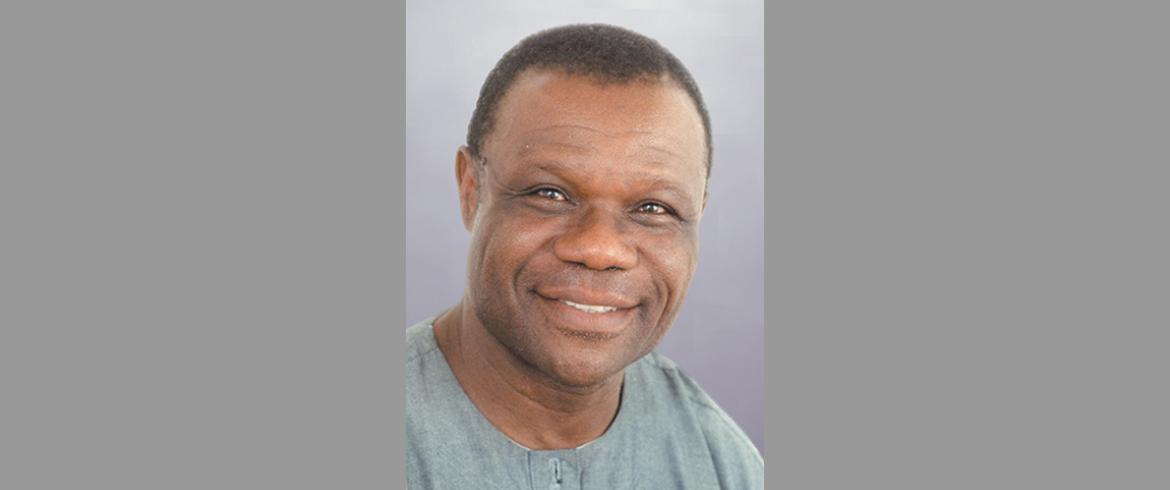
Soro Nnaji, a retired civil engineering professor at the FAMU-FSU College of Engineering, recently passed away. (FAMU-FSU Engineering)
Dr. Soronadi Nnaji passed away on Friday, June 9, 2023. He would have been 80 years old on August 12, 2023.
He was one of the founding faculty of the Department of Civil & Environmental Engineering at the FAMU-FSU College of Engineering and was the third departmental chair. It is my sincere opinion that Dr. Soro Nnaji was a giant on whose shoulders all of the department stands.
Soro was a terrific mentor, a big-hearted individual, and an excellent administrator and professor. He meant a lot to me personally as he recruited and then mentored me through the years, and without him, I quite literally would not be here—I am sure I am not the only one.
Soro was a pioneer in instituting technology and programs that are still core to the department today. Soro’s leadership was pivotal in the creation of the CEE department’s Ph.D. program. In 1991 when I arrived, there was no Ph.D. program; under Soro’s chairmanship, the department laid the groundwork and wrote the initial petition to establish such a program. Soro was the driving force behind the conceptualization, lobbying the Board of Regions for support, and ensuring the required resources, and the extensive documentation required to develop an impactful civil engineering doctoral program. All this work finally came to fruition in 1997.
In 26 years, the program has graduated over 50 Ph. D.s, going from what was essentially a small teaching program to a legitimate engineering research program with national standing and a significant impact on the field. Soro was integral to this success, and all Ph. D.s from this program are part of his legacy.
Soro’s vision and encouragement led to the development of a number of the department’s core programs. He developed the hydraulics lab, one of the first labs in the department—still operational today. He also developed a unique course on engineering concepts, which was fundamental in orienting students to the engineering program.
Even projects that he did not personally execute were influenced by his encouragement and support. For example, I remember as a relatively new professor, Soro encouraged my development of the Structural Diagnostics and Forensic Engineering lab (the initial component of the current Materials and Mechanics lab), supporting me through the process of applying and managing a National Science Foundation grant, and developing the basic concepts of the lab.
I’m sure there are many others whose academic trajectory has been influenced by Soro’s mentorship and support. He was truly invested in ensuring that everyone, from students to faculty, received all they needed in their academic and professional development. He aimed to provide a strong engineering curriculum, varied and comprehensive research opportunities, and increase the department’s standing as a civil engineering research center—all this he achieved. I do not exaggerate when I say that Dr. Soro Nnaji is the godfather of the Department of Civil & Environmental Engineering and that it owes a debt to his efforts and leadership.
Soro was chair at a time of great changes in academia, a time of advancements that may seem trivial today, but without which our jobs would be so much more difficult. During his chairmanship, telephones with voicemail boxes were introduced to faculty offices; a first across the college, and one of the pioneers across the university. At the time, even the Dean’s Office lacked voicemail. This was in the days before email, smartphones, and text messages. It may seem like an exaggeration, but I would compare this advancement to the long-forgotten invention of the simple hinge—taken for granted, but necessary in relieving the load in our day-to-day labor.
At a personal level, Soro was always there for me, especially as a young professor where at times the very rebellious child in me chafed at restrictions, rebelled and sought to grab control over infuriating situations. Those who have known me for a while can testify to that. Even as of three weeks ago when we last spoke, after more than 32 years, he still provided guidance. His wise counsel will be sorely missed. My big brother is no more. The big baobab tree has fallen. May his soul find peace. Bon voyage my big brother and friend. I will always miss you. The world is now emptier without you.
Dr. Primus Mtenga is a professor and Fulbright Scholar in the Department of Civil & Environmental Engineering
